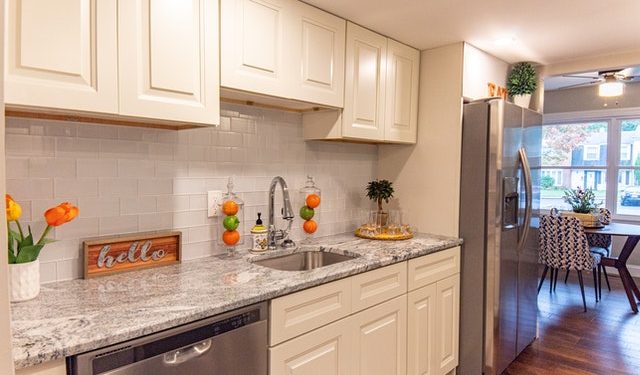Remodeling your kitchen isn’t a decision you take lightly, and you might regret putting a lot of money into a project if you do it wrong, or if you later realize that you didn’t even need a complete kitchen remodeling. Asking yourself a few questions and knowing what a project this huge will entail usually helps people decide if the kitchen remodeling is worth it or not.
If you want to know what those questions are, and what you should keep in mind if you do end up going forward with your plans, keep reading.
Table of Contents
1. Do You Need a Complete Remodeling?
Sometimes the issues you’re facing with your kitchen and the problems that make you want to change the whole thing can be fixed with a simple repair job, like broken kitchen cabinets or faulty plumbing.
Ask yourself if you really need a whole new kitchen, or if you can get away with changing just the part that you have an issue with. Of course, there are some issues that do warrant a whole remodeling, like not enough storage space or want to add a kitchen island to your kitchen.
You might also want to remodel your kitchen before you end up putting your home up for rent or for sale, but be careful not to spend more than the value it would add to your home.
2. Kitchen Cabinets and the Floor Plan
Once you’ve made up your mind, you need to figure out what kind of kitchen cabinets and what floor plan you want. Not only do the cabinets need to be spacious, but they also need to be made of good and long-lasting material. The next time they’ll be changed will probably be years later, if not at least a decade. You can opt from wood cabinets from Best Online Cabinets or choose something else like Veneer.
At the same time, choose the right floor pattern to go with the cabinets. If you have a small kitchen, the right floor can make it look either open and big or even smaller and stuffier than it is. You can also incorporate vertical lines and wall panels to give the illusion of height to your ceiling.
3. The Kitchen Layout
Your kitchen is, first and foremost, a functional space where you or someone else in the family prepares meals. This is why it’s important for the kitchen to have a functional and good layout that makes for the least amount of walking when you’re cooking food.
The kitchen work triangle is a great principle that you should keep in mind when deciding on the layout – the preparation, storage, and cooking areas in your kitchen should all be in a triangle that you navigate while working.
If you have the space, you can include a dining area and a kitchen island in your new kitchen too.
4. Choosing the Right Contractor
If you want your kitchen to end up just as you imagined, it’s important to sign with the right contractors who have the least chances of messing anything up. Ask around in your circle if anyone has any recommendations for you, and once you have a list of your top candidates, get in touch with them.
Ask them to provide you with references and check up with the latest ones – ask these people how they would describe working with the contractors. Important questions can be about the work habits of the contractors, of whether or not they completed a project in time and within budget, and if they did anything wrong. If they did, ask the clients how quickly the problem was fixed and how.
5. Finishing Touches
Once your kitchen is done, it might be time to add some finishing touches to make it your own. You have a clean slate to work with, so make sure all your kitchen storage is in order from the start. When it comes to fixtures, try opting for brass ones instead of the usual chrome, and see if an accent wall would suit your overall design.


